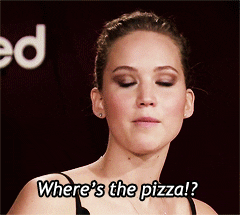Is Intermittent Fasting the Magic Bullet for Weight Loss?
Intermittent fasting (IF) has gained significant popularity in recent years, and its appeal continues to grow.
IF entails alternating between eating and fasting and there is no guidance on what specific food types are for non-fasting days. Instead, you often limit your intake to non-caloric fluids like water, tea, coffee, and diet drinks. In some cases, a very restricted amount of daily calories may be allowed.
Intermittent fasting (IF) has become a social media sensation, gaining significant visibility and endorsement from various celebrities. The 16:8, 5:2, and Eat-Stop-Eat diets are all different versions of intermittent fasting, each with its unique approach to cycling between eating and fasting periods.
🚫 Why this myth is unhelpful:
The landscape of IF is nuanced, with a lack of comprehensive research outlining clear-cut pros and cons. But if you are grappling with binge eating, IF introduces complexities.
While some individuals may find success, for many of my clients, IF becomes another form of restriction, increased hunger and low energy which are all well-known risk factors and symptoms of binge eating.
If you've previously experimented with IF and it led to binge eating, it's crucial to acknowledge that this might not be the right path for you. It's not a matter of having more willpower or control; you are unique, and there is no universal dietary approach that suits everyone.
Furthermore, the extended periods of fasting associated with IF may bring about challenges in meeting essential nutritional needs which could lead to potential nutrient deficiencies.
🌟 What you could do instead:
Acceptance of Binge Eating: Reflect with kindness on how past dieting experiences have shaped your relationship with food. Embrace acceptance as a powerful tool to break free from guilt and shame around food.
Regular Eating Patterns: Establish regular eating patterns to keep hunger and stress levels stable. Consistent nourishment can reduce binge eating. You want to aim for 3 meals and 2-3 snacks per day initially.
Improve Your Relationship with Food: Removing food labels and addressing food fears to remove any anxiety or stress about food is going to support you to stop binge eating for good.
Move Beyond Willpower and Control: This is a HUGE binge-eating myth. You don’t need any more willpower and control. Remember that diets have a 98% failure rate, it’s the diets that have failed you. End the self-blame today!
😉 Toni’s Top Tip:
Remember, progress, not perfection, is the goal.
Intermittent fasting is not a magic bullet to improved health or weight loss and in fact, it can make binge eating worse. For lasting, long-term health benefits, it is best to find a nutritious eating pattern that you enjoy and can stick with.
Struggling with dieting and binge eating…
Imagine a life where food is a source of nourishment and pleasure, rather than a source of stress and anxiety. If you want to stop dieting and binge eating cycle, it can be a challenging journey, but you don't have to go through it alone.
Work with me 1:1
Learn more about my 1:1 consultations and how they can support you to break free from dieting and binge eating. Click here to explore my services.
Don't let dieting and binge eating control your life any longer. Contact me here to find out how I can support you.


